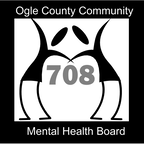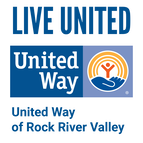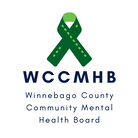Sexual assault is not an easy topic to bring up with your children and no one wants to believe that their child might be vulnerable to assault. Yet kids need information to help them reduce their risk of assault. Parents are one of the best resources for providing guidance.
What is sexual assault?
Sexual assault is any unwanted or forced sexual contact including touching or fondling, or sexual contact between a younger and much older person. Force often involves emotional manipulation.
How vulnerable are kids?
As many as one in four girls and one in six boys may experience some form of sexual abuse before the age of 18. In addition, about one in four high school and college age women will experience rape or attempted rape. Most sexual assaults happen to people under the age of 18 and both young women and young men are vulnerable.
When should I talk to my children?
It is never too early to begin to give young people information that can help them to stay safe. Important points that you can reinforce throughout your child's development are:
How do I bring it up?
Talking to your older child or teen about sexual assault should not be a one-time conversation, and you don't have to say everything at once. Instead, open up an ongoing dialogue about safety over time. You can:
What do young people need to know?
Young people need to know that sexual assault can happen with people they know and trust. It is important to communicate that sexaul assault is NEVER a victim's fault.
Young people need to know specific behaviours that are inappropriate, or that could be warning signs that someone might try to take advantage of them. It is important for them to be able to identify early warning signs such as:
Make talking to your kids about sexual assault a plan in your household, for safety's sake!!
What is sexual assault?
Sexual assault is any unwanted or forced sexual contact including touching or fondling, or sexual contact between a younger and much older person. Force often involves emotional manipulation.
How vulnerable are kids?
As many as one in four girls and one in six boys may experience some form of sexual abuse before the age of 18. In addition, about one in four high school and college age women will experience rape or attempted rape. Most sexual assaults happen to people under the age of 18 and both young women and young men are vulnerable.
When should I talk to my children?
It is never too early to begin to give young people information that can help them to stay safe. Important points that you can reinforce throughout your child's development are:
- "Your body is your own and you can set limits about who touches you."
- "You deserve to be respected. It is okay to leave and to tell someone to stop if they make you feel disrespected, unsafe or uncomfortable."
- "You can always come to me with problems and concerns of any kind."
How do I bring it up?
Talking to your older child or teen about sexual assault should not be a one-time conversation, and you don't have to say everything at once. Instead, open up an ongoing dialogue about safety over time. You can:
- Use natural moments to start the conversation, such as a news article about a rape, attempted abduction, or a television program containing a reference to sexual abuse. Ask your child what they have heard and what they know. Give them the opportunity to ask questions.
- Let your child know that you have read this article and want to check in with them about safety. Again, ask for their thoughts as you share your own.
- Link a discussion of sexual assault safety with other personal safety conversations that you have (such as bike safety, car safety, street safety).
- Be open and available for your children to come to you. Reinforce the idea that they can talk to you any time about what is on their minds.
What do young people need to know?
Young people need to know that sexual assault can happen with people they know and trust. It is important to communicate that sexaul assault is NEVER a victim's fault.
Young people need to know specific behaviours that are inappropriate, or that could be warning signs that someone might try to take advantage of them. It is important for them to be able to identify early warning signs such as:
- Someone who tries to isolate them from friends and family, or get them alone to a deserted place.
- Someone who tries to bribe them with presents, food, drugs/and or alcohol.
- Someone who doesn't respect his or her opinions or limits. Someone who ignores or pushes past the boundaries that your child sets.
Make talking to your kids about sexual assault a plan in your household, for safety's sake!!
Resources
Below are other websites and articles that can provide more insight into the discussion of preventing against sexual violence.
10 Ways to Teach Your Child the Skills to Prevent Sexual Abuse
PBS for Parents
Washington D.C. Rape Crisis Center
Rape, Abuse, & Incest National Network (RAINN)
Everyday Feminism
YouTube: Signs of Sexual Abuse
Stop It Now
Mama Bear Effect
Love Is Respect
What Parents Need to Know About Grooming & Sexual Abuse
10 Ways to Teach Your Child the Skills to Prevent Sexual Abuse
PBS for Parents
Washington D.C. Rape Crisis Center
Rape, Abuse, & Incest National Network (RAINN)
Everyday Feminism
YouTube: Signs of Sexual Abuse
Stop It Now
Mama Bear Effect
Love Is Respect
What Parents Need to Know About Grooming & Sexual Abuse








